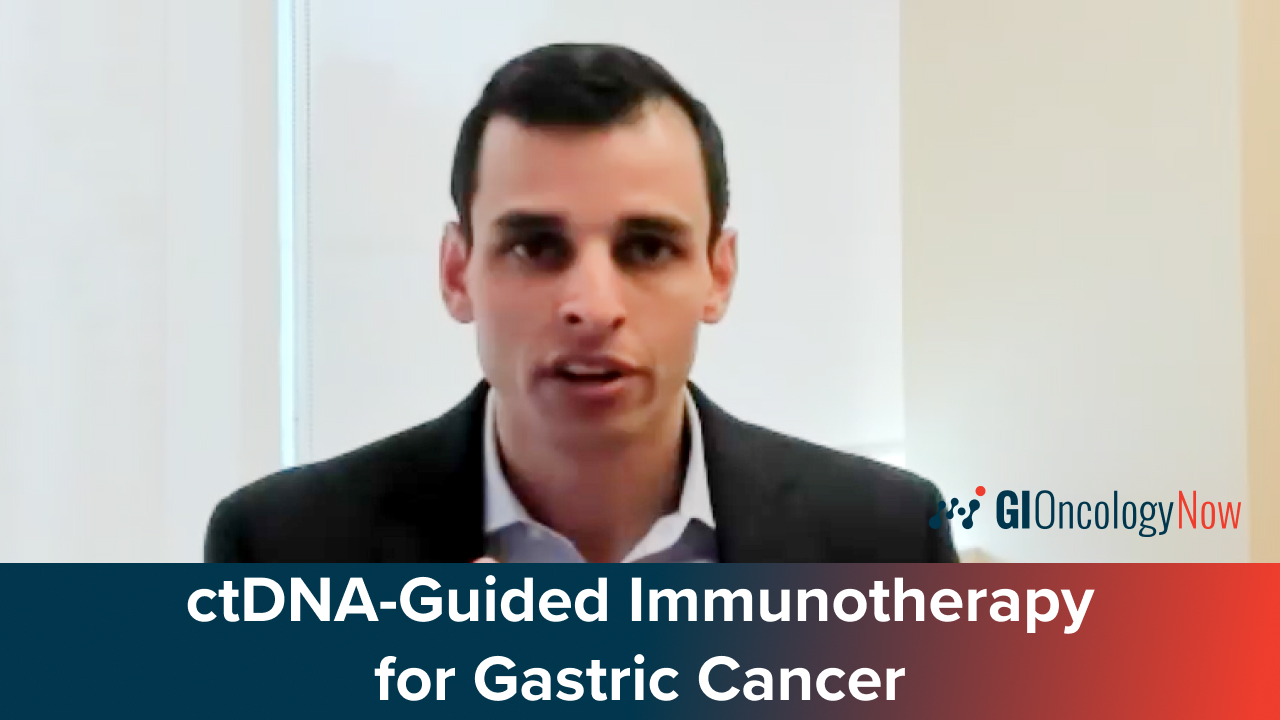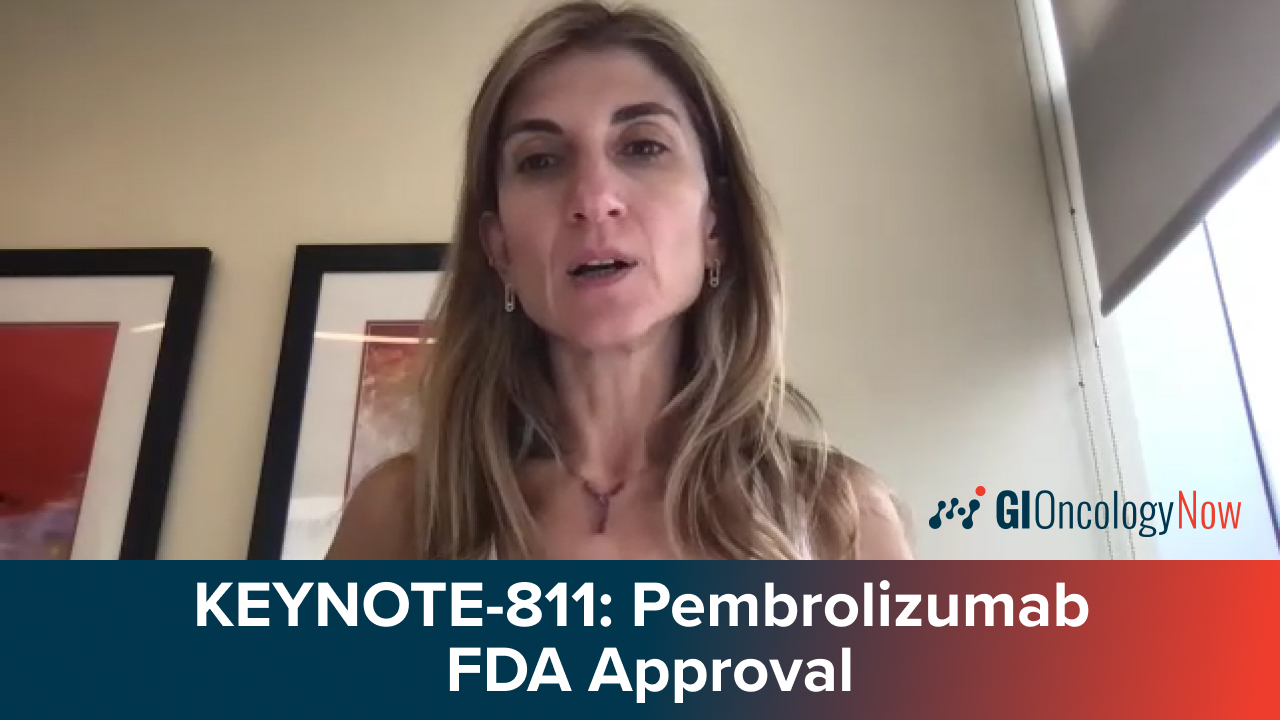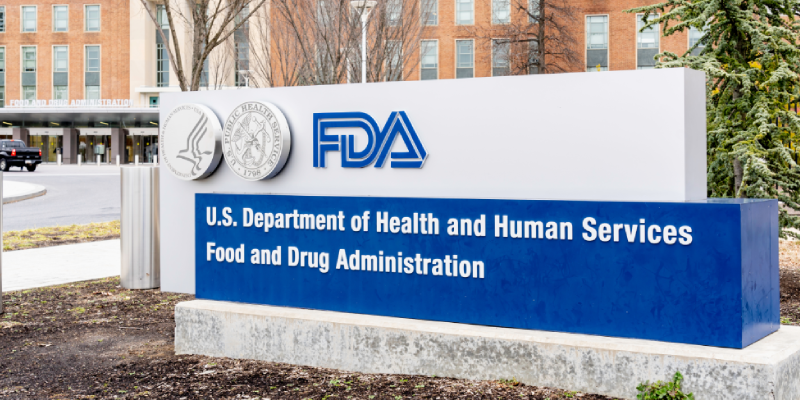
The US Food and Drug Administration (FDA) has granted approval to first-line pembrolizumab (Keytruda) in combination with fluoropyrimidine- and platinum-containing chemotherapy for patients with locally advanced unresectable or metastatic HER2-negative gastric or gastroesophageal junction (GEJ) adenocarcinoma.
FDA approval comes as a result of efficacy data from the KEYNOTE-859 study—a multicenter, randomized, double-blind, placebo-controlled trial of 1579 patients with HER2-negative advanced gastric or GEJ adenocarcinoma without prior systemic therapy for metastatic disease. Patients were randomized (1:1) to receive pembrolizumab (200 mg) or placebo with investigator’s choice of combination chemotherapy: cisplatin (80 mg/m2) plus 5-FU (800 mg/m2/day) for 5 days or oxaliplatin (130 mg/m2) on day 1 plus capecitabine (1000 mg/m2) twice a day for 14 days of each 21-day cycle.
Results showed a statistically significant improvement in overall survival (OS), progression-free survival (PFS), and overall response rate (ORR). The median OS was 12.9 months (95% CI, 11.9-14.0) in the pembrolizumab arm compared with 11.5 months (95% CI, 10.6-12.1) in the placebo arm (hazard ratio [HR], 0.78; 95% CI, 0.70-0.87; P<.0001). The median PFS was 6.9 months (95% CI, 6.3-7.2) and 5.6 months (95% CI, 5.5-5.7), respectively (HR, 0.76; 95% CI, 0.67-0.85; P<.0001). ORR was 51% (95% CI, 48%-55%) and 42% (95% CI, 38%-45%), respectively (P<.0001).
Additionally, duration of response—as assessed by blinded independent central review according to Response Evaluation Criteria in Solid Tumors 1.1—was 8.0 months versus 5.7 months, respectively.
A further analysis showed a statistically significant improvement in OS, PFS, and ORR in patients receiving pembrolizumab based on tumors expressing PD-L1 with a combined positive score ≥1 and combined positive score ≥10.
Discontinuation of pembrolizumab due to adverse reactions occurred in 15% of patients, and adverse reactions resulting in discontinuation in ≥1% of patients were infections and diarrhea.







 © 2025 Mashup Media, LLC, a Formedics Property. All Rights Reserved.
© 2025 Mashup Media, LLC, a Formedics Property. All Rights Reserved.